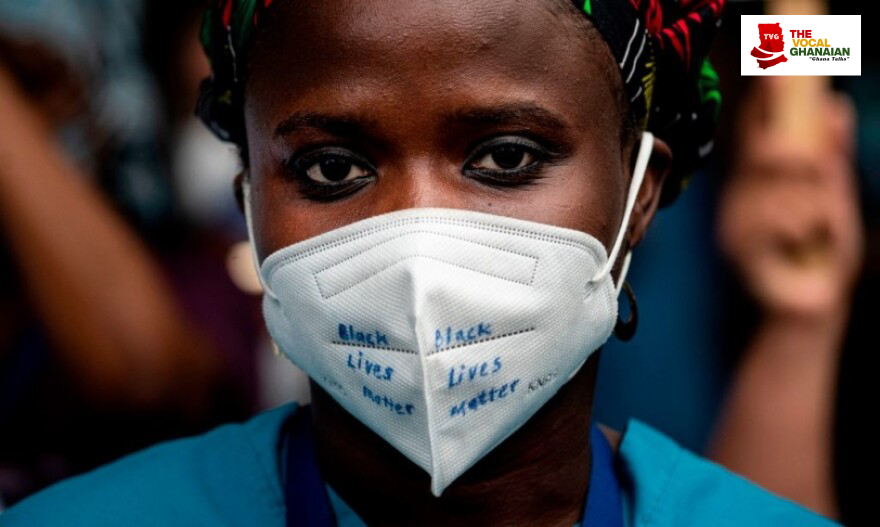The Ghana Medical Association (GMA) has expressed worry about the rate of brain drain in the country’s health sector. According to the association, the local economic challenges, coupled with the devastating effects of the COVID-19 pandemic, have resulted in the departure of health personnel from the country. It has therefore urged the government to take swift action to fix the country’s faltering economy, which will reduce the current brain drain in the country.
Dr Titus Beyuo, General Secretary of the Ghana Medical Association, appealed to physicians and other healthcare professionals urging them to remain in Ghana while they pursue better working conditions with the government.
The State of Ghana’s Health System
Health care is not the best in Ghana although there have been the construction of new hospitals and the renovation of existing ones by previous administrations. Despite the improved health facilities, the conditions of service for health care providers especially in the public sector do not encourage the health care workers to stay in the country.
In July last year, the Ghana Medical Association, Ghana Registered Nurses and Midwives, Health Services Workers’ Union, and Government and Hospital Pharmacists Association Health workers across the country served a warning notice to the government of a possible strike if the government did not pay their Cost-of-Living Allowance, (COLA).
The government has not been able to pay regularly the nursing trainee allowance, an amount of GHS350 cedis which is paid monthly to students in the Nursing and Midwifery Training Colleges. There is also the case of trained nurses staying at home because they have not been posted by the government to work in public health facilities across the country. Meanwhile, the situation is quite different in developed countries.
How Different are Healthcare Systems in Developed Countries from Developing Countries?
Health care infrastructure: These include roads, transportation, electricity, sanitation and buildings. These are more accessible in developed countries as compared to developing countries.
Healthcare providers: Healthcare providers are difficult to recruit and maintain in developing countries. This leads to a shortage of healthcare professionals in developing countries. Brain drain occurs mostly in developing countries because there is a high demand for healthcare workers in developed countries with better salaries and conditions of service. According to research by the International Trade Administration Ghana produces extremely few drugs locally, and much less medical equipment and devices locally. Approximately 85% of the nation’s entire healthcare consumption is imported.
The public health system is complemented by private healthcare services. Also, customers value health facilities for their high standards and convenience and a growing number of the middle class prefer private healthcare facilities and can afford the cost.
The State of Health in Ghana
Ghana has made significant progress in improving the health of its population in recent years. The country has implemented a number of initiatives to increase access to quality health care, including the expansion of its network of health clinics and the training of more health care professionals.
One major challenge facing the health sector in Ghana is the high cost of care, which can be a barrier for many people seeking treatment. The government has taken steps to address this issue by introducing measures such as the National Health Insurance Scheme, which aims to make health care more affordable and accessible to all citizens.
In addition, Ghana has made significant strides in reducing the burden of infectious diseases, such as malaria and HIV/AIDS, through initiatives such as the distribution of insecticide-treated bed nets and the expansion of antiretroviral therapy. However, non-communicable diseases, such as diabetes and hypertension, are on the rise and are becoming a major focus of the country’s healthcare efforts.
Ghana’s healthcare system is facing a devastating brain drain, as many of our talented health professionals leave the country to seek better opportunities and working conditions abroad. This trend is fueled by a lack of investment in the healthcare sector, inadequate support and resources for healthcare workers, and a lack of career advancement opportunities.
It’s time to address these underlying issues and work to retain our valuable health professionals in Ghana.


I have been exploring for a bit for any high-quality articles or weblog posts in this kind of area . Exploring in Yahoo I finally stumbled upon this web site. Reading this information So i’m glad to exhibit that I’ve a very just right uncanny feeling I discovered exactly what I needed. I most undoubtedly will make sure to don’t fail to remember this website and provides it a glance regularly.